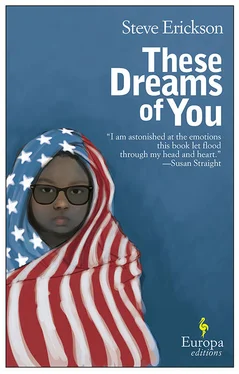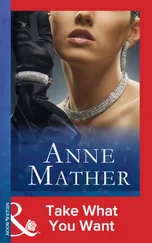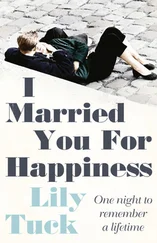A series of rewrites, says Zan, “of a single story written nearly a century if not more after the life of the man who inspired the narrative, and titled according to authors who almost certainly didn’t write them. In other words they’re noms de plume—‘Matthew,’ ‘Mark,’ ‘Luke,’ ‘John,’ to put them in their later order.”
The thing is, Zan explains, the original narrative wasn’t Matthew’s but Mark’s. “Mark’s was the first version written,” says Zan, “certainly the most straightforward,” referring only obliquely when at all to what later became basic tenets about the protagonist’s divinity. The climax of the story, the protagonist becoming undead—“forerunner of the current zombie phenomenon in fiction,” points out Zan — is underwhelming compared to later versions. The executed man’s mother goes to the tomb, finds the stone rolled aside from the entrance, her son’s body gone. A stranger is there in his place. “He’s, uh, just gone ,” the stranger says, ending the story on a note as modern as it is enigmatic.
The historian Mark doesn’t speculate much, reports facts as best as he can determine them. Along comes Matthew, who rewrites Mark’s version, speculating perhaps wildly.
The history becomes historical novel. Facts are orchestrated to suggest a conclusion as to what the facts mean. This version of the story attracts a following — not the last time a science-fiction writer starts a cult — and Mark’s history is demoted to supplemental text. Matthew’s more lyrical version is elevated to a place implying something authoritative. Of course this doesn’t stop other competing revisions, not to mention time-honored squabbles over originality and who’s derivative of whom.
“Luke” rewrites Matthew. Then “John” rewrites all of them. “With John’s version,” Zan says, “we witness the advent of the experimental novel,” more impressionistic, less concerned with narrative, a new kind of novel in which history recedes and defers to a “truth” bigger than mere facts can capture. The protagonist virtually disappears. When he does appear, he’s a more dramatic figure; he doesn’t simper with compassion, sorrow, mercy , “he doesn’t wallow,” says Zan, “among lowlifes and deviants with innocuous promises of love, charity. He’s a hero not a mere protagonist, with new fire and fury. He’s newly distinguished by the animating power of hate and judgment.”
The audience in the hall stares back at Zan dazed, but only one or two have left. Parker slumps in his seat, arms folded across the chest, in a perfected pose of boredom; but Zan can see the boy watching his father, surreptitiously.
Afterward some of the students from the audience invite Zan to a local pub on the edge of the university. Zan and Parker find Sheba and her new nanny in the college cafeteria where, in the corner, the girl’s attention has been successfully engaged by a stack of children’s books. Molly doesn’t look so good to Zan — exhausted or ill: We’ve burned her out in less than twenty-four hours, he thinks; except that Sheba may be the quietest her father has seen her short of unconsciousness.
The university isn’t ye olde English campus of Zan’s fantasies, with rolling knolls and cobblestone walls veined with ivy. It has an industrial look about it, though the walk to the pub is more like it, through a forest of hazy trees like crucified green clouds. Almost demurely Sheba follows with one hand clutching Molly’s.
The small crowd chitchats, some with Zan, who barely can think after the lecture. At the pub he craves a shot of tequila but settles for vodka, not wanting to embarrass anyone with presumptuously exotic requests. “Right, then,” says J. Willkie Brown, setting the vodka on the table between them in one of the pub’s back rooms. Zan isn’t inclined to ask Brown his opinion of the lecture; he would be genuinely unconcerned if he weren’t being paid £3,500. Brown says, “What’s next?”
Zan says, “Well, we wait for Viv to come back from Addis Ababa.” To his surprise, he has to suppress an impulse to tell Brown about the foreclosure.
“Yes, of course,” says Brown, “any news on that front?”
Zan chews his lower lip. “No.”
“Hmm,” Brown just nods. Off in the area of the bar, Zan can see Molly getting Parker a Coke and Sheba a Sprite; the boy is trying not to get talked to by some of the students while Sheba reverts to form, climbing on things. “A bit of a handful, aren’t they?” He tries his best to sound good-humored about it.
“This is nothing,” Zan says. “Peace in our time, to quote a British prime minister. It’s like the nanny has cast a spell on Sheba.”
“I see. So what’s it all about?”
“The nanny?”
“Viv in Africa.”
Zan looks at Sheba, out of earshot. “Her mother,” he answers, nodding at the girl. “I mean her birth-mother.”
“I thought she was an orphan.”
“Well, James, orphans have mothers. They’re just not mothers who are in the picture anymore.”
Brown says, “But this one is in the picture now, I take it?”
“It’s not that she’s in the picture,” says Zan, “it’s the way she’s not in the picture.”
Brown shakes his head and shrugs.
“We’ve been trying to find out about the mother for a while.” Zan glances back at the girl. “Someday she’ll want to know. She’ll be angry if we never tried to find out. She’ll be angry at us anyway about one thing or another, about all kinds of things, but this one she’ll have a right to be angry about. A couple of months ago Viv got a journalist in Addis on the trail, he asked some questions, and now there are these. . well, they’re not even reports , they’re too undefined to be reports, they’re rumors. . or what have you. . that this journalist Viv hired was getting close to some discovery about the mother and, in asking all kinds of questions, something happened to her. She’s in jail. She’s in hiding. She’s fled the country. She’s dead.” He looks at Molly. “Listen, what do you know about—?”
“Another drink?” asks Brown.
Zan realizes he’s downed the one hand he has. “O.K.,” he says, pulling some money from his pocket, “let me—”
“Don’t be bloody silly.” The Englishman gets up to get another drink. Zan continues watching Molly and Sheba, calls over the waitress and orders fish and chips for the kids. When Brown returns, Zan says, “The kids like your fish and chips.”
“Hmm,” says Brown.
“Thanks for the drink,” says Zan.
Fortified, not that Brown necessarily needs it but he supposes Zan does, the Englishman says, “The flaw with your lecture, of course. . ” He pauses to see how this beginning registers; Zan raises an eyebrow and Brown continues, “. . the flaw is that it presumes there’s a history at all, doesn’t it? I mean the whole original business, Jesus and God and all that. Hardly the stuff of history, is it?”
“How do we know?” says Zan.
“But you don’t mean you believe in God?” says Brown.
Zan makes a show of pondering this as though he never has before. “Fifty-one days out of a hundred.”
“What kind of faith is that?”
“The best I can manage. Whether anyone calls it faith or not, I don’t much care.”
“But why bother to believe at all?”
“Because it’s not a matter of whether I can be bothered, it’s a matter of what I do. Believe, I mean.”
“Are you certain?” Brown says. “I mean, people who believe do so because they rather want or need to, don’t they?”
Читать дальше











